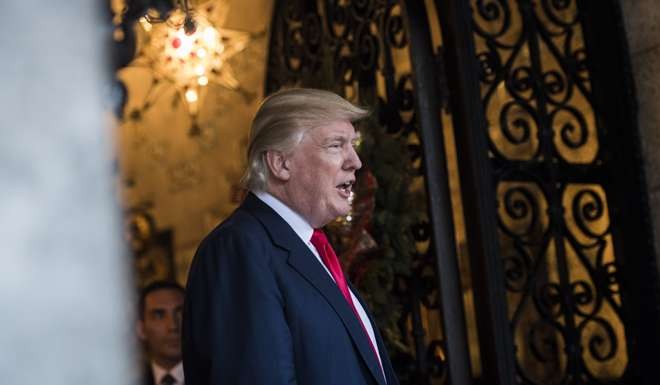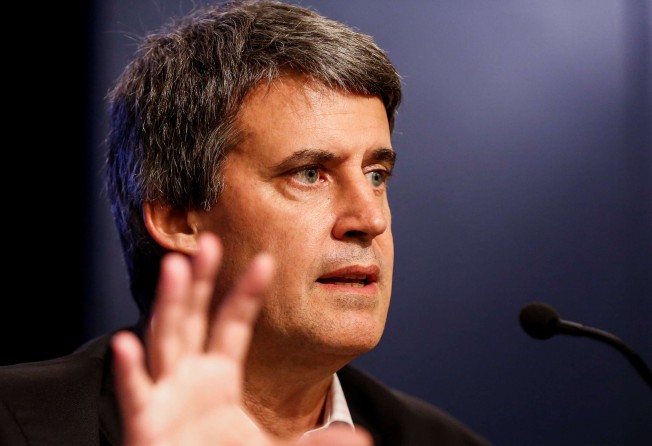
Why emerging market investors must hold their nerve in 2017
Although three separate year-end developments bode ill for developing economies, a full-blown crisis is unlikely

As 2016 draws to a close, emerging market investors would be well advised to reflect on the implications of three separate developments that occurred at the end of this year. Taken together, they augur badly for market sentiment towards developing economies in 2017.
The first, and most recent one, is the decision on Monday by Argentina’s reform-minded president, Mauricio Macri, to sack the country’s well-regarded finance minister, Alfonso Prat-Gay, because of disagreements over economic policy and growing criticism of the depth and duration of the country’s recession.
This is troubling given that Argentina - Latin America’s second-largest economy which was locked out of the capital markets for 15 years because of a debt default and bitter conflict with its creditors - has been hailed by international investors as the most exciting economic and political “turnaround story” in emerging markets, underpinned by a new business-friendly government that has abolished currency controls and pledged far-reaching reforms.
Prat-Gay was fired because of opposition to his tax reforms in Argentina’s parliament, or Congress, and a protracted contraction in economic output that shows little signs of abating.
His departure reflects the huge political challenges faced by even the most reform-minded governments in emerging markets.
The second development is the prospect of a hefty fiscal stimulus programme in the US in the wake of the upset victory of Donald Trump in the country’s presidential election. The “Trumpflation” trade has exacerbated a sell-off in global bond markets, fuelled by the Federal Reserve’s more hawkish outlook for monetary policy.

According to JPMorgan, in the week ending December 21 - exactly a week after the Fed surprised markets by forecasting three interest rate hikes next year, up from two previously - emerging market mutual equity and bond funds suffered net outflows of US$3.4bn and US$1.3bn respectively, a significant increase compared with the previous week’s redemptions and the sixth consecutive week of outflows since Trump’s victory.
Emerging market equities have fallen more than 6.5 per cent since the US election, compared with a 6.1 per cent rise in the benchmark US S&P 500 index.
The third development is partly a consequence of the second: renewed concerns about financial stability in China, accentuated by the recent increase in capital outflows and mounting pressure on the renminbi, which over the past several weeks has fallen to a series of eight-year lows against the dollar. As JPMorgan notes, “the most recent rise in the [dollar] and surge in US interest rates have accentuated [balance of payments] pressures,” with China’s foreign reserves now just $50bn above the psychologically important $3trn level.
The combination of setbacks in the emerging market economic reform process, a sharp deterioration in market conditions and a re-emergence of concerns about China bode ill for sentiment as 2017 gets under way.
The combination of setbacks in the emerging market economic reform process, a sharp deterioration in market conditions and a re-emergence of concerns about China bode ill for sentiment as 2017 gets under way
That developing economies are under renewed strain at a time when many investment strategists believe the 30-year long bull market in government bonds has finally run its course and when even the European Central Bank and the Bank of Japan - the two major central banks still pursuing quantitative easing - are moving away from unlimited asset purchases make the start of 2017 a perilous period for emerging markets.
The big question is whether investors in emerging markets can hold their nerve.
The betting is that they will.
The crucial difference between the current sell-off and the so-called “taper tantrum” three years ago, triggered by the Fed’s unexpected decision to scale back quantitative easing, is that many developing markets are now in better shape.
According to the International Monetary Fund, the average current account balance in south east Asia’s economies as a share of GDP has swung from a deficit at the end of 2013 to a sizeable surplus at the end of this year.
Just as importantly, local currencies in emerging markets have depreciated sharply since the taper tantrum (the Malaysian ringgit and the South African rand have both lost nearly 50 per cent against the dollar), providing developing economies with a crucial safety valve and limiting the scope for further declines.
The higher-yielding assets of developing economies are also likely to remain attractive to international investors given the persistently high stock of negative-yielding debt in Europe and Japan.
While there will be risks aplenty next year, a full-blown crisis in emerging markets is highly unlikely.
Nicholas Spiro is partner of Lauressa Advisory